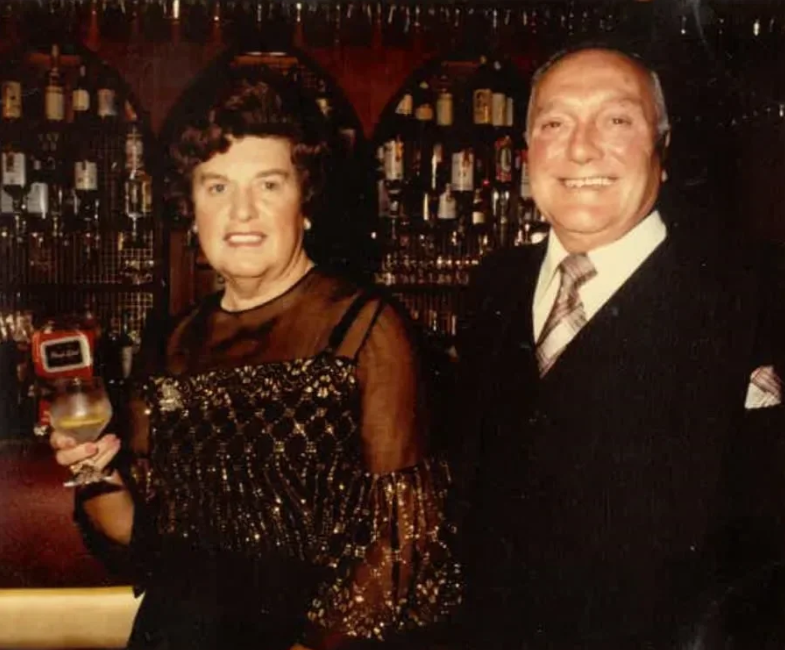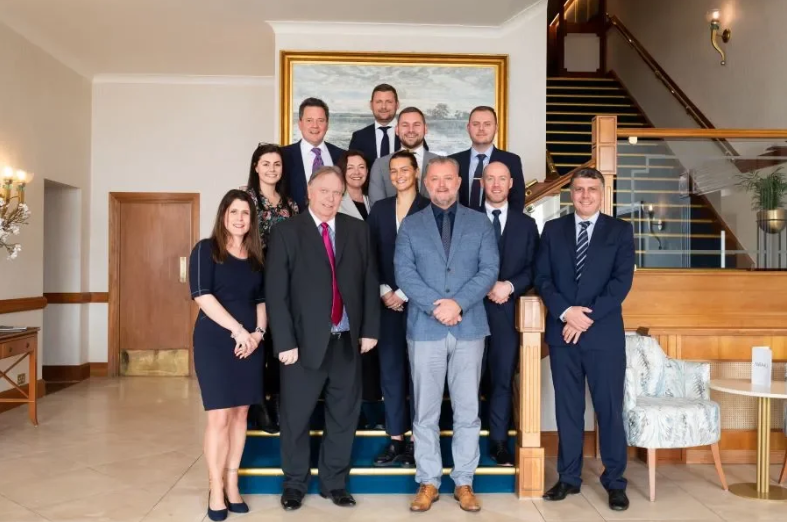
Apart from a stint as a fulltime athlete – becoming the sixth fastest 400-metre sprinter in the UK – Peter Brend has always worked in the Brend family business. He is a Director at the Brend Collection, founded by his grandfather in 1955. The Brend family has since built a portfolio that includes 11 hotels in Devon and Cornwall as well as restaurants and other leisure businesses.
“Our aim is not to grow our wealth. It’s to grow our legacy and pass it on to the next generation. That is what we were taught. Through growing your legacy, you should naturally grow your wealth – although sometimes not as successfully or quickly as you would like,” Peter laughs. Despite being Director, Peter still waits the tables at Saunton Sands Hotel in Braunton, Devon, as his predecessors have done. “We are all ‘people’ people. My grandfather was pretty much a workaholic. My father was a workaholic,” he says. “The relationships that you form with your customers and your team are really what drives you on and makes you successful. To be on the frontline is the only way you’re going to get those customer interactions as well as staff interactions,” Peter explains. Saunton Sands is the company’s flagship hotel (pictured above). Peter started washing dishes there in his summer holidays when he was only ten years old. “I enjoyed the camaraderie. I enjoyed the speed and interaction of things. It taught me to communicate up and down the lines of hierarchy and to show respect for people that were working across every area,” says Peter.
“Unless you’re growing, you’re diluting your wealth”
Peter’s grandfather, Percy Brend, started out as a butcher’s boy and Peter describes him as “a bit of a rogue, who knew every poacher and gamekeeper”. In the aftermath of the Second World War, they would drop all their goods off behind Percy’s butcher shop in exchange for extra rations. Percy would put everything on a train to be sold in London. He was hugely successful, opening up butchers across the Southwest before he started investing in property. He took his wife, Florence, to a fundraising event in Saunton Sands in the early 1940s, where he said to her: “One day I’ll buy this hotel for you,” and that’s exactly what he did. Florence ended up living there until her dying days.

A man of his word: Percy Brend promised his wife Florence (both pictured above) that he would buy Saunton Sands Hotel for her one day.
Several generations of Brends work across the business today, with Peter’s daughter having done trial shifts over the summer and his cousin’s son working in guest relations. “My son did two days of portering. He said: ‘Dad, I need to do something else. I can’t do that’,” Peter says jovially. “We’ve got the next generation coming through, but it’s important for us to train them well before we progress them. “The fact is that for every generation it becomes harder,” says Peter. “Because, unless you’re growing, you’re diluting your wealth.” The family is currently in the process of trying to decide how best to continue to pass the company on to a growing number of people. “It’s a challenge that we’re facing at the moment among ourselves. The communication between families is not always brilliant.
“Everyone has different goals in life, so there’s the challenge of trying to make the business work for each family member.” Sometimes it is a struggle to all push in the same direction, but generally we always come back to doing it.” When asked how he would advise those looking to pass a family business on to their children, Peter says: “My number one thing would be to communicate with them and “Unless you’re growing, you’re diluting your wealth”manage their expectations. Advise them that there are other opportunities outside the business if they wish to take them. Working within a family business is a lifestyle choice. It won’t give you as much freedom to progress or to explore other avenues, whereas you do need to be fully committed. Have those conversations at an early age.”

Staying in the family business “won’t give you as much freedom as other avenues”, says Peter Brend (pictured above with his team).
Taking leisure seriously
Looking ahead, the Brends are hoping to expand beyond south-west England. However, Peter stresses the importance of having a management structure in place that enables them to do so. “The right property is really important to fitting in with the brand,” he adds. “When the right property comes up, we would like to expand into that resort.” Over the last couple of years, the business has rebranded from Brend Hotels to the Brend Collection, so that it can split out parts of the collection for different markets.
As the business grows and evolves, the Brends will undoubtedly have to look at what skills the next family custodians need, whether that comes from the next generation or outside the family.
“If I wasn’t working in hospitality, I would probably do something in sport,” Peter muses. “It would have to be something with people. I couldn’t sit behind the desk all day – it would drive me insane.”
How we would advise the family
Jonathan Brownlow, Wealth Planning Director:
We regularly meet with families like Peter’s. Engaging the wider family in discussions about what happens next, and individual roles, is key to successfully passing on the family business.
The recent UK Budget has introduced additional succession complexity because of new inheritance tax (IHT) rules that apply from April 2026. A key issue will be how to meet inheritance tax liabilities when shareholders die. Under the present rules, funding family business inheritance tax liabilities has not been an issue that needed attention.
Until April 2026, shares in trading businesses can be passed down with 100% relief from IHT during lifetime or on death. After April 26, individuals can pass down up to £1 million of value through their Will, with amounts greater than this attracting only 50% relief from IHT, i.e. a 20% tax rate will apply. This applies to lifetime gifts of shares if the individual does not survive for seven years after the gift.
Having the most appropriate strategy for the business’ ongoing success will continue to be the main objective for most people. The family could drive this themselves, or engage external advisers like us to give an independent voice, collating relevant party’s views and help build a framework that meets the family’s needs for years to come.
This article is issued by Cazenove Capital which is part of the Schroders Group and a trading name of Schroder & Co. Limited, 1 London Wall Place, London EC2Y 5AU. Authorised by the Prudential Regulation Authority and regulated by the Financial Conduct Authority and the Prudential Regulation Authority.
